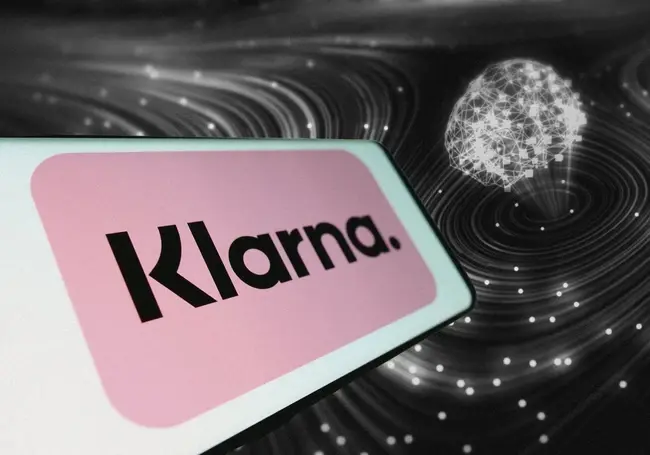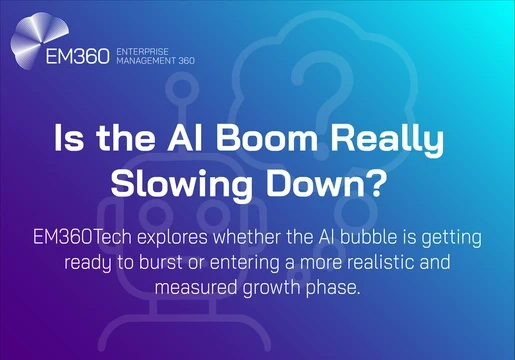Over two months ago, Klarna announced that AI helped the organization significantly reduce marketing agency expenditure by 25%.
Now the financial services organization plans to cut its workforce by nearly half, from 3,800 employees to 2,000 – a change that is expected to take place in the coming years.
The plan comes following a reduction of sales and marketing spend by 11% in just the first quarter of 2024 by the firm. Leveraging AI helped them boost the number of campaigns and update marketing collateral more often.
The pay now, pay later organization believes that AI can make operations more efficient. It said that AI is responsible for 37% of the cost savings – nearly $10 million annually.
Earlier in May, David Sandström, CMO at Klarna said that AI is helping the organization become leaner, faster, and more responsive to what their customers care about, “leading to a much, much better experience.”
"And we’re actually driving more marketing activity while saving tens of millions of dollars a year," he added.

AI-driven reductions continue
BBC reported last week that Klarna has already cut its workforce from 5,000 to 3,800 in the past year, and still wants to reduce that to 2,000 employees by using AI for marketing campaigns and customer service.
The global payments network and shopping assistant already minimized its expenditure on external marketing suppliers by 25%. This includes translation, production, CRM, and social agencies, with run rate savings of $4 million.
By adopting AI, Klarna managed to reduce image production costs by $6 million and was still able to carry out more campaigns with a higher number of images.
The organization replaced tools requiring manual skills with gen AI tools like Midjourney, DALL-E, and Firefly for image generation—and Topaz Gigapixel and Photoroom for final adjustments – Klarna saved $1.5 million in the first quarter of 2024 solely.
Klarna says that AI increases the organization’s efficiency and creativity.
Gen AI helped generate over 1,000 images in the first 3 months of 2024, reducing the image development cycle from 6 weeks to just 7 days. This acceleration includes checks for brand consistency, image quality, and legal compliance.
AI to have a “dramatic impact”

Boss Sebastian Siemiatkowsk, the CEO and co-founder of Klarna told the BBC that job cuts would mean the organization can pay higher to its remaining workers.
However, the government may need to reevaluate AI-related actions, he added, stating that it could have "a dramatic impact" on jobs and society.
"I think politicians already today should consider whether there are other alternatives of how they could support people that may be effective," Siemiatkowsk told the Today program, on BBC Radio 4.
The co-founder also said that it was “too simplistic” to simply say new jobs would be created in the future.
"I mean, maybe you can become an influencer, but it's hard to do so if you are 55 years old," added Siemiatkowsk.
Klarna has begun using AI to streamline operations in marketing and customer service, leading to a reduction in the need for human employees. Klarna believes that this will increase efficiency and profitability.
The firm’s interim results showed increased revenue by 27% to 13.3 billion Swedish krona (£990 million). It said that its proven scale efficiencies have been enhanced by investment in AI, which has driven down operating expenses and improved gross profits.
Job cuts through “natural attrition”
Amid the AI boom, unions have cautioned against job cuts and are asking lawmakers to protect workers.
Klarna’s job cuts will be through “natural attrition,” which means not replacing employees who leave the company. While this could imply an increased workload for remaining employees Siemiatkowski says that AI would replace the work.
He told the BBC that AI was a potential "positive development" for some individuals who may be paid more.
He said it was “critical” for the government to account for those individuals losing their jobs, and that t there’s no “stopping progress” for companies such as Klarna.
"It's important that Europe and democracies are ahead in the evolution of AI,” the co-founder added.
Klarna's job cuts are happening as the company prepares for an initial public offering (IPO). The organization’s strong leanings toward AI technology could make its stock more appealing to investors.
When the company goes public, investors may be more likely to buy shares in a company that is at the forefront of technological advancements.
The Paypers reported that Klarna is planning an IPO in 2025, potentially in the first half of the year. The Swedish fintech company has been in talks with major Wall Street banks, including Morgan Stanley and Goldman Sachs, for the listing.







Comments ( 0 )